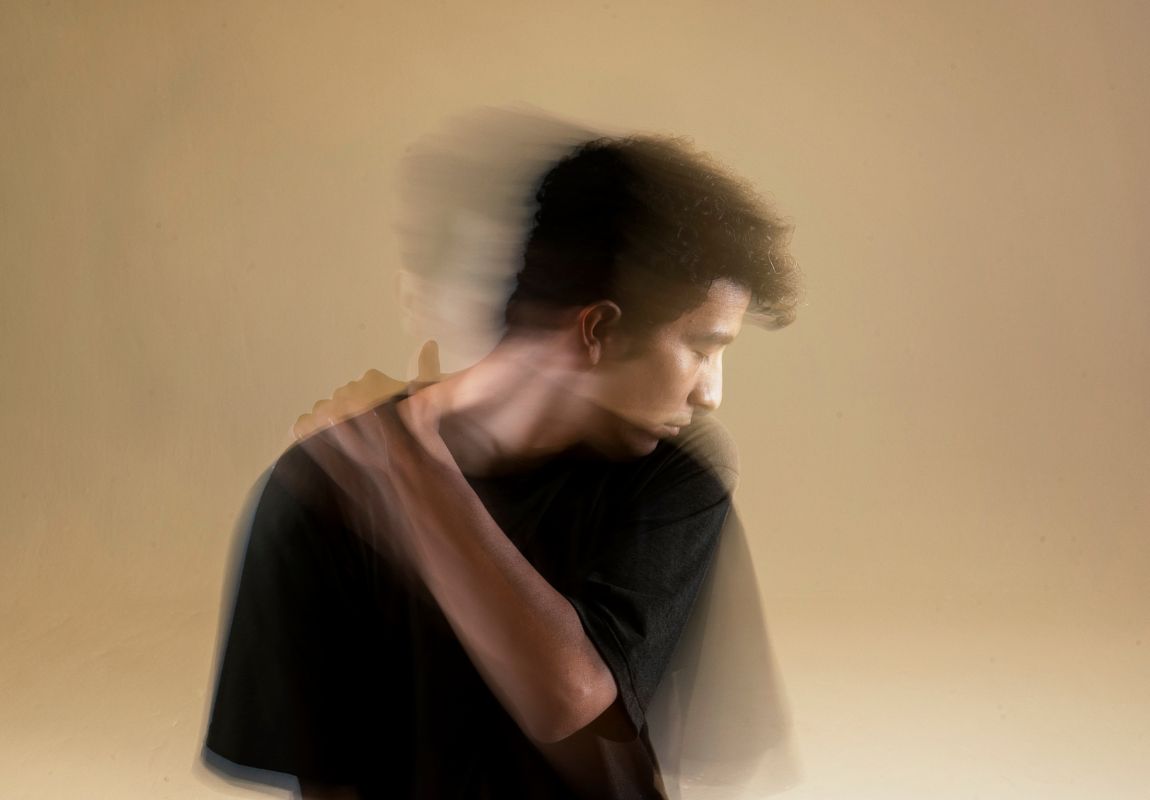Anxiety is something we all experience occasionally. Being sleepless the night before a big presentation at work, nerves during that make-or-break exam, stomach knots prior to getting on a plane, or worrying indecisively over major financial or life decisions, they’re feelings are familiar to most everyone from time to time.
However, the distinction between healthy levels of anxiousness and a diagnosable anxiety disorder can be difficult to discern. Less than 37% of people with anxiety disorder ever receive treatment, notes the Anxiety & Depression Association of America (ADAA).
It raises the notion that many people who would benefit from anxiety treatment may downplay a potential anxiety disorder or fail to understand its seriousness.
Recognizing those signs of an anxiety disorder, no matter how obvious or subtle — in yourself or someone you care about— takes honesty, self-reflection, and a willingness to seek help. “Anxiety disorders are highly treatable,” says the ADAA, but how can it take shape for you? What goes on inside anxiety treatment centers, and how can you make recovery from anxiety a reality? Let’s explore more.
What Is Anxiety?
Anxiety is a natural stress response. It’s the body’s natural alarm system, a way of alerting you to potential danger or preparing you to face a challenge.
Believe it or not, there’s an evolutionary advantage to feeling anxious. Developing anxiety was beneficial to our ancestors in their emotional and behavioral toolkits when it came to staying vigilant against potential predators. Public speaking might cause even the most extroverted person to retreat into their shell, but the anxiety over it can be a motivator for preparing and practicing, says the National Alliance on Mental Illness (NAMI). Anxiety becomes an asset when driving in busy traffic, for example, because it keeps you alert to and cognizant of your surroundings.
“Anxiety is telling us that we care about the future and want it to turn out a certain way,” notes a University of California study. “Feeling anxious actually releases dopamine, which motivates us to pursue rewards and take action to bring about the future we want. For example, we might study harder for a test, schedule a checkup at the doctor, or devote more time to our relationship.”
When anxiety becomes chronic, intense, and excessive, and you may feel yourself worrying about — even dreading — normal, low-stakes situations when there’s no immediate threat, it could be a sign of a burgeoning anxiety disorder.
“These feelings of anxiety and panic interfere with daily activities, are difficult to control, are out of proportion to the actual danger, and can last a long time,” says the Mayo Clinic. “You may avoid places or situations to prevent these feelings.”
There’s no set timeframe for how long an anxiety disorder lasts. Each person can respond differently to anxiety, just as everyone can develop anxiety for different reasons. According to the World Health Organization (WHO), anxiety disorders can result from social (your own personal experiences, particularly stressful ones), psychological (your mindset and mental health), and biological (such as genetics and family history of anxiety) factors. “Anyone can have an anxiety disorder, but people who have lived through abuse, severe losses or other adverse experiences are more likely to develop one,” notes the WHO.
Anxiety Disorders Explained
While some symptoms of many anxiety disorders may overlap and share patterns, each one has distinct characteristics. Here’s a look at four of the most common:
Generalized Anxiety Disorder (GAD)
Generalized Anxiety Disorder, or GAD, is the broadest, most common type of anxiety. With GAD, you may experience a persistent, pervasive sense of extreme, unrealistic worry about common, everyday events that would normally not cause concern.
Living with GAD, you might anticipate the worst or obsess over possible catastrophes regarding work, your health, finances, relationships, or day-to-day moments, even when there’s no rational or logical reason for it. According to the Mayo Clinic, the strain and stress from GAD can lead to a host of physical symptoms, like hyperventilation, a racing heartbeat, sweating, trembling, and feeling weak. GAD often co-occurs (goes hand-in-hand) with depression or the likelihood of substance abuse.
Social Anxiety Disorder (SAD)
A fear of being judged by other people is the main symptom of Social Anxiety Disorder, or SAD. SAD extends beyond being shy or reserved. It involves feeling petrified of being embarrassed, humiliated or rejected in social situations, where, like GAD, the intense worry is often exaggerated or overblown.
As a result, people with SAD may avoid taking part in conversations or speaking up in class or work in fear of saying something that might get laughed at, leading them to isolate themselves and avoid people altogether. It’s an anxiety disorder that can make everyday activities like shopping, eating in public, or simply making a phone call extremely difficult. According to NAMI, SAD can lead to panic attacks while anticipating or being a part of social interactions.
Panic Disorder
Feelings of dread and terror that come without warning are typical of the sudden panic attacks experienced by those living with panic disorder. These sudden episodes of intense fear, similar to those with GAD, usually have no basis in reality, where the fear is disproportionate to the situation.
A panic attack is often accompanied by chest pain, heart palpitations, shortness of breath, or dizziness, physical symptoms that are often mistaken for a heart attack. Between attacks, you may worry about when and where the next attack will occur, raising the risk of having the next panic attack. “Many people will go to desperate measures to avoid an attack, including social isolation,” says NAMI.
Specific Phobias
Some people also develop phobias and anxiety over specific objects or situations. “Specific phobias are an extreme fear of objects or situations that pose little or no danger but make you highly anxious,” says the Mayo Clinic. “So, you try to stay away from these things.”
The clinic notes some of the most common specific phobias:
- Situational fears like flying on planes, being in a car, tight spaces or classrooms
- Natural environment fears such as thunder and lightning, a fear of heights or the dark
- A fear of animals, including dogs, various reptiles or insects
- Medical fears, like feeling extremely squeamish about needles, seeing blood, or doctor visits
- Other common fears like choking on food, feeling sick to your stomach, sudden loud sounds or clowns
NAMI notes other common phobias, like agoraphobia (a fear of places and situations that may cause panic), selective mutism (affecting children who cannot speak in situations like school), separation anxiety disorder (common in children when separated from parents or guardians) and anxiety over substances and medications (such as symptoms of anxiety during drug or alcohol withdrawal).
Looking for quality treatment for substance abuse and mental health that’s also affordable? Aliya Health Group's treatment facilities accept most major insurance providers. Get a free insurance benefits check now!
Check Your CoverageAnxiety Statistics
Anxiety disorders are the most common mental illness in America, notes the ADAA:
- Forty million adults — just over 19% of the entire population — are affected by anxiety disorders each year.
- Women are two times as likely to experience GAD and panic disorder as men, three times more likely to suffer from obsessive-compulsive disorder than men, and five times more likely to suffer from PTSD, or Post-Traumatic Stress Disorder.
- Most people develop anxiety disorder symptoms before the age of 21, notes NAMI.
- In adults with any anxiety disorder, nearly 23% suffer seriously, with 33.7% being moderately affected, notes the National Institute of Mental Health.
- According to the American Medical Association, GAD has a prevalence of 10.5% in pregnant women and 10.8% in the postpartum period.
- Studies show that more than 17% of people with a substance use disorder within the last year also met the criteria for an anxiety disorder.
- Globally, the annual cost of anxiety disorders is estimated at more than $6.5 trillion, nearly 2.1% of all healthcare-related expenses, according to research.
What Is Anxiety Treatment?
NAMI notes that because different anxiety disorders have their own unique symptoms, each one should have its own anxiety treatment plan.
However, most anxiety treatment programs include a standard combination of therapies and medication. The goal when pursuing professional help for an anxiety disorder is to help address the underlying causes of your anxiety and start to unpack how it affects your thoughts, which in turn affects your emotions, and then your behaviors.
Through anxiety treatment, you’ll then start to learn coping skills and tools to make anxiety more manageable — and most importantly, be able to live your life fully without having to avoid the people, places, and situations that make you anxious.
Evidence-based Psychotherapy for Anxiety
It’s remarkable how talking through your problems with a counselor can open so many pathways to recovery and so many insights into yourself, making psychotherapy such a valuable component of anxiety treatment. Psychotherapy is a one-to-one talk therapy with a therapist or psychologist you may be familiar with — a safe, comfortable environment where you can begin to unfold and understand, over multiple sessions, how your anxiety affects you.
Behavioral therapy at anxiety rehab centers can take shape in a few ways. Cognitive Behavioral Therapy (CBT) helps you identify and change negative thought patterns that may fuel anxiety. By recognizing distorted thinking, you can reevaluate it in light of reality and develop healthier ways to respond to anxiety triggers.
Then there are approaches like Acceptance and Commitment Therapy (ACT). ACT enables you to remain present in the moment and accept, without judgment, your emotions attached to your anxiety. (For instance, it’s OK to feel embarrassed or ashamed in social situations when struggling with SAD.) By detaching from that negativity rather than fighting or feeling guilty about it, you can commit to making mental, emotional, and behavioral changes that support your values.
Likewise, exposure therapy is another method you might try in anxiety treatment. Its purpose is to illustrate that by confronting your fears, you have the power to change the negative associations you have with them and overcome your anxiety.
Get confidential help from our addiction and mental health treatment facilities located across the United States. Call to join one of our quality programs today!
Speak With Our Admissions TeamHolistic Therapy for Anxiety
Anxiety can manifest itself in your mind, your body, and your spirit — the three core parts of you as a person that holistic therapy at centers for anxiety aims to heal through a number of different modalities.
You might sign up for mindfulness meditation sessions. A regular mindfulness practice helps you develop awareness of the present moment without judgment, reducing rumination about the past or worry about the future, which both play a role in anxiety symptoms. Yoga and tai chi work to strengthen the mind-body connection by combining physical postures, mindful breathing, and meditation to reduce anxiety.
Then there’s art and music therapy, creative outlets like painting, drawing, or even playing a musical instrument to channel the thoughts and feelings that might be difficult (at first) to articulate verbally in talk therapy. Anxiety recovery centers will include holistic treatment alongside psychotherapy as part of a comprehensive care continuum.
Medication for Anxiety
For some people, medication plays an important role in managing anxiety symptoms. There are four common types of anxiety medication trusted in treatment, according to the ADAA:
- Selective Serotonin Reuptake Inhibitors (SSRIs) work to regulate brain chemistry by making serotonin more available, a lack of which is linked to anxiety symptoms.
- Serotonin-Norepinephrine Reuptake Inhibitors (SNRIs) work to regulate serotonin and norepinephrine (also known as noradrenaline) in your brain, the latter of which can cause anxiety when levels are too high.
- Benzodiazepines are an anti-anxiety medication that promotes relaxation and reduces physical anxiety symptoms. Note that these drugs are highly addictive and should only be used for a short period.
- Tricyclic antidepressants are an additional anti-anxiety medication and an alternative to benzodiazepines because of their addictive potential. Tricyclic antidepressants serve a similar function to SNRIs and may work best if you’re pursuing therapy at dual diagnosis treatment centers for anxiety and depression together (also known as a co-occurring disorder).
What Is an Anxiety Treatment Center?
Anxiety recovery centers specialize in treating all the types of anxiety disorders we’ve discussed in this article. They’ll combine a comprehensive and eclectic mix of therapies and anxiety treatment programs designed to address all aspects of anxiety, from managing your symptoms to understanding the underlying root causes of anxiety, while teaching you the proactive solutions to recover from an anxiety disorder.
The best mental health treatment centers traditionally offer two levels of care. Inpatient anxiety treatment, also known as residential anxiety treatment, is best for people with more severe conditions who can benefit from living onsite for a period of time. There, they can commit 24/7 to their recovery without distractions or triggers.
Outpatient anxiety treatment is for people with milder forms of anxiety and for those who can’t take time away from home, work, or school commitments to reside in an inpatient setting. Outpatient offers the flexibility of letting you return home at night once treatment for anxiety concludes for the day.
The staff at anxiety disorder clinics typically includes psychiatrists, psychologists, therapists, doctors, nurses, case managers, holistic therapists, support workers, and other integral staff members with a commitment to seeing you through to recovery.
Finding an Anxiety Treatment Center Near You
The ideal centers for anxiety will offer those various treatment approaches and levels of care, but there’s more you should look for:
Experienced and Credentialed Staff
It’s a truism that the quality of care you receive at an anxiety clinic is only as good as the professionals providing it. Research the background and expertise of the staff on hand. Are the therapists fully licensed or board-certified? Do they have specialized training and extensive experience treating anxiety as well as other conditions that tend to co-occur or cross over, like depression or substance abuse?
The right credentials and certifications paint a confident picture of mental health professionals who can successfully guide you through the often complex, labyrinthine path to recovery.
Safe and Supportive Environment
To treat anxiety the right way, you need to be in an environment that cultivates feelings of calmness, harmony, and the peace you may seek if anxiety has become a severe, almost chaotic force in your life. Mental health treatment centers that achieve this tone make every room — from your own inpatient lodging to therapy spaces to holistic modality studios — feel physically and emotionally safe.
What do we mean by safe? Here, you won’t be faced with triggers, reminders, negative energy, or sights and sounds that are loud, disruptive, confrontational, or unhelpful or unproductive to your therapy. Not only are the right anxiety rehab centers clean and comfortable, they pride themselves on being inclusive, not only in group therapy dynamics but for you as an individual. Our promise of inclusion is that we meet you where you’re at.
Paying a visit to one of our various anxiety treatment centers can be a big first step to helping you make the commitment to seeking help — a surefire sign of strength, not weakness. In the meantime, if you have questions regarding anxiety treatment and how Aliya Health can help, don’t hesitate to change your life with one phone call by reaching out to us today.
- https://adaa.org/understanding-anxiety/facts-statistics
- https://www.nami.org/about-mental-illness/mental-health-conditions/anxiety-disorders/
- https://www.universityofcalifornia.edu/news/how-we-misunderstand-anxiety-and-miss-out-its-benefits
- https://www.mayoclinic.org/diseases-conditions/anxiety/symptoms-causes/syc-20350961
- https://adaa.org/understanding-anxiety/generalized-anxiety-disorder-gad
- https://www.nami.org/about-mental-illness/mental-health-conditions/anxiety-disorders/
- https://www.who.int/news-room/fact-sheets/detail/anxiety-disorders
- https://www.mayoclinic.org/diseases-conditions/specific-phobias/symptoms-causes/syc-20355156
- https://www.nimh.nih.gov/health/statistics/any-anxiety-disorder
- https://pmc.ncbi.nlm.nih.gov/articles/PMC3775646/pdf/nihms507378.pdf
- https://www.sciencedirect.com/science/article/pii/S016503272300530X#:~:text=Anxiety%20symptoms%20had%20a%20significant%20impact%20on,burden%20that%20increased%20with%20severity%20of%20illness.&text=The%20global%20annual%20direct%20cost%20of%20anxiety,all%20healthcare%2Drelated%20expenditures%20(Konnopka%20and%20K%C3%B6nig%2C%202020).
- https://www.ama-assn.org/delivering-care/public-health/what-doctors-wish-patients-knew-about-managing-anxiety-disorders
- https://my.clevelandclinic.org/health/treatments/acceptance-and-commitment-therapy-act-therapy
- https://www.health.harvard.edu/mind-and-mood/exposure-therapy-what-is-it-and-how-can-it-help#:~:text=Benefits%20of%20exposure%20therapy&text=Over%20time%2C%20it%20can%20help,fears%20and%20managing%20your%20anxiety.
- https://www.apa.org/ptsd-guideline/patients-and-families/cognitive-behavioral
- https://adaa.org/find-help/treatment-help/medication-options
- https://mhanational.org/resources/what-is-noradrenaline/
- https://www.mayoclinic.org/diseases-conditions/depression/in-depth/antidepressants/art-20046983





